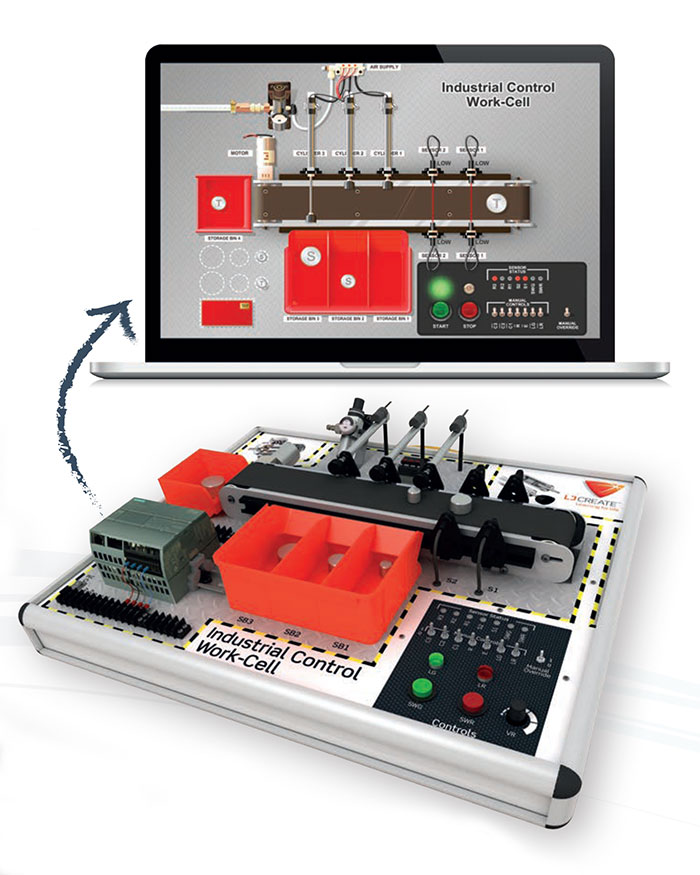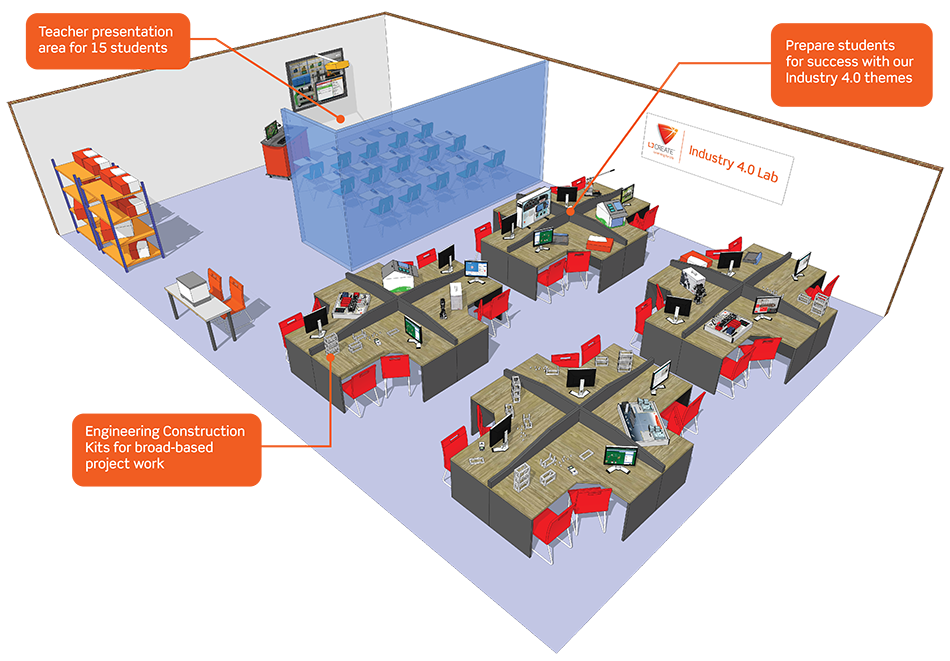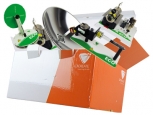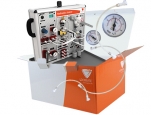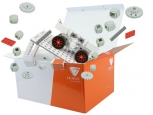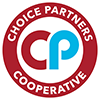Industry 4.0 Career Pathways Program
Industry 4.0 is the name given for the ongoing revolution and innovation in the automation of industry, using smart technologies. Industry 4.0 concepts can be grouped into four key areas:
- Cyber-Physical Systems
- Internet of Things (IoT)
- Cloud Computing
- AI and Cognitive Computing
Implementing Industry 4.0 ideologies can have many benefits for industry, including:
- Improving productivity and efficiency
- Promoting collaborative working
- Offering greater flexibility and agility
- Reducing operating costs
The aim of our program is to help students prepare for a career in a range of industries where Industry 4.0 skills are commonly used and increasingly required.
Industry 4.0 Pathways
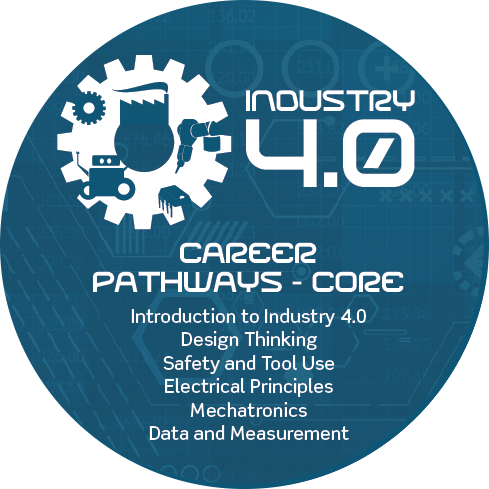
Give students a foundation in Industry 4.0 and STEM concepts.
As part of our STEM career pathways program, Industry 4.0 is designed to provide middle and high school students (grades 7-10) with an introduction to Industry 4.0 concepts and applications across a range of industry sectors.
The Industry 4.0 program is designed to give students a foundation in how Industry 4.0 and STEM concepts are applied in career pathways and then develop their knowledge and skills in specific industry sectors:
The Industry 4.0 Lab will provide the opportunity for students to explore concepts such as sensors and control, data analytics, and the efficient utilization of resources. The program is designed to provide students with the skills and expertise they need to succeed in high school, college, industrial skills programs, and industry certification courses.
• Agricultural Technology
• Agricultural Science
• Natural Resources
• Construction Tchnology
• Building Technology
• Electronic Systems
• Electrical Technology
•Energy Technology
• Biomedical Technology
• Biochemistry and Food
• Health Science
• Human Food
• Computer Science
• Communications Technology
• Programming Robots
• Working with IT
• Mobile Robotics
• Intro to Logistics & Warehousing
• Industrial Control
• Manufacturing Technology• Machine Tools• Rapid Manufacturing• Industrial Robotics
• Transportation Technology
• Intro to Automotive Systems
• Hybrid and Electric Vehicles
Skills/Knowledge Required for Industry 4.0 Careers
Industrial Skills
Safety
Quality systems
Industrial Equipment
Fluid power
Robotics
Smart Sensors and Devices
Sensors and smart sensors
Data collection
Control Systems
Industrial control and PLCs
Motor control
Connectivity and Networking
Computer networks
Wireless communication
Data Analytics
Statistical analysis
Database use
Project-Based Learning
Our program is packed full of design projects — perfect to use with your 3D Printer!
A large part of the Industry 4.0 Career Pathways operation Program is project-based. Students work on projects as part of a multidisciplinary team to produce solutions to real-world problems.
The project-based nature of the program gives students the opportunity to learn, develop and apply academic skills and knowledge while they develop “21st Century Skills” such as critical
thinking and problem solving, communication, collaboration, and creativity.
Career Readiness Instruction
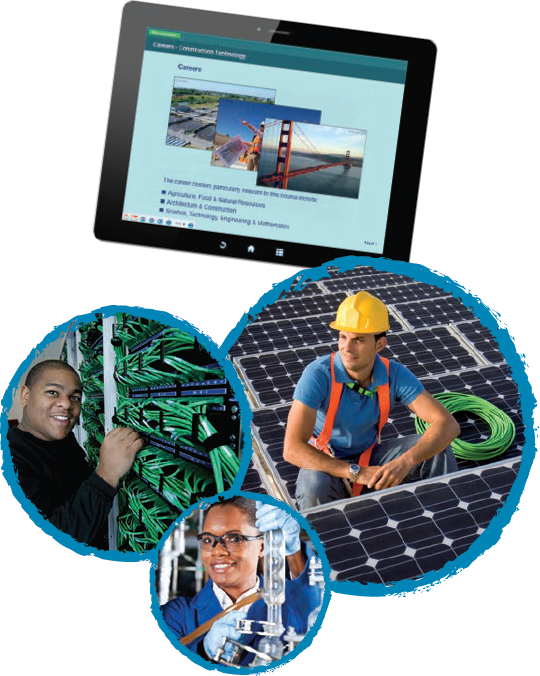
Each course provides instruction for advanced CTE certification courses, and career readiness - covering pathways such as:
- Agriculture, Food and Natural Resources
- Architecture and Construction
- Business, Management and Administration
- Health Science
- Information Technology
- Manufacturing
- Marketing, Sales and Service
- Science, Technology, Engineering and Mathematics
Course Overview
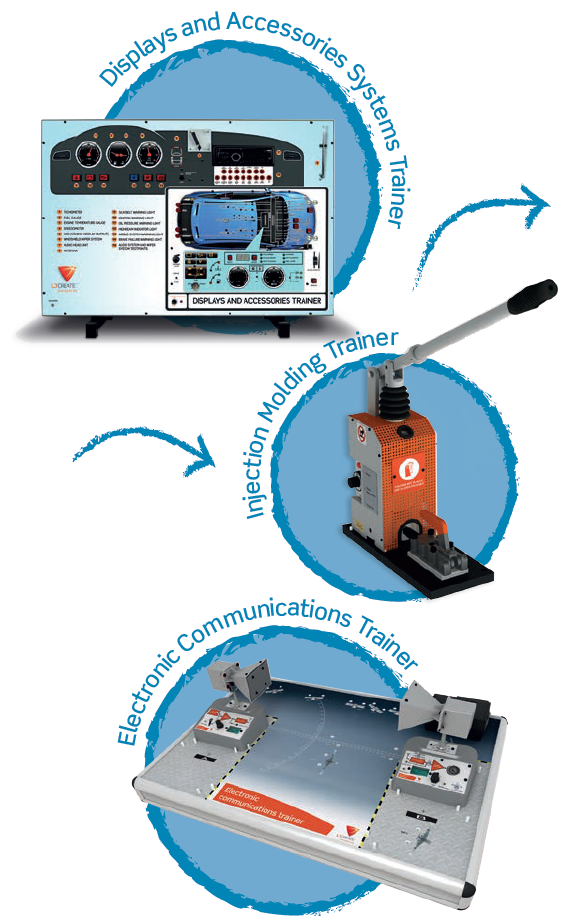
Create your Industry 4.0 career pathways program
The Industry 4.0 Career Pathways Program includes 8 project-based courses. An outline of each course is included in the Program Guide, containing:
- A description of the course
- Equipment requirements
- Support notes
- Typical careers
- Learning objectives
- Lessons
Each course contains:
- A presentation to identify relevant career pathways
- A set of lessons including theory presentations, hands-on practical activities, and investigations
The Core Curriculum* course should be studied first - the remaining courses can be studied in any order. Required equipment is shown below.
Industry 4.0 Career Pathways Core*
Engineering Construction Kit (220-01)
Basic Electricity Trainer (140-10)
Measurement Kit (511-08)
Datalogging Kit - Complete (520-00)
Physics Apparatus Kit (511-01)
3D Printer
Agriculture
Sustainable Energy Production Student Resource Pack (100-02)
Engineering Construction Kit (220-01)
Earth Science Apparatus Kit (513-01)
Health & Biomedical Technology
Engineering Construction Kit (220-01)
Biomedical Technology Kit (230-01)
Human Biology Kit (510-03)
Datalogging Kit - Complete (520-00)
Biology Apparatus Kit (510-01)
Logistics and Supply Chain
Engineering Construction Kit (220-01)
Industrial Control Trainer (290-01)
Construction
Structures and Materials Teaching Set (121-00)
Green Energy in Buildings Trainer (122-01)
Electronics Circuits Trainer Teaching Set (450-00)
Basic Electricity Trainer (140-10)
Information Technology
Engineering Construction Kit (220-01)
Educational Robotics Invention Kit - ERIK (250-01)
Electronic Communications Trainer (200-01)
Manufacturing
Injection Molding Trainer (350-01)
Machine Tools Class Pack (506-50)
Engineering Construction Kit (220-01)
3D Printer - Capable of Printing ABS
Transportation
Engineering Construction Kit (220-01)
Displays and Accessories Systems Panel Trainer (752-01)
A sample Industry 4.0 Lab configuration could include the following resources:
- Biomedical Technology Kits
- Engineering Construction Kits
- Basic Electricity Trainers
- Educational Robotics Invention Kits
- Fluid Power Resource Packs
- Green Energy in Buildings Trainer
- Sustainable Energy Production Student Resource Pack
- Electronic Circuits Trainers
- Structures and Materials Resource and Consumables Pack
- Industrial Control Trainer
- Machine Tools Class pack
- Data Logging Kit
- 3D Printer
More Information
Manufacturing & Engineering
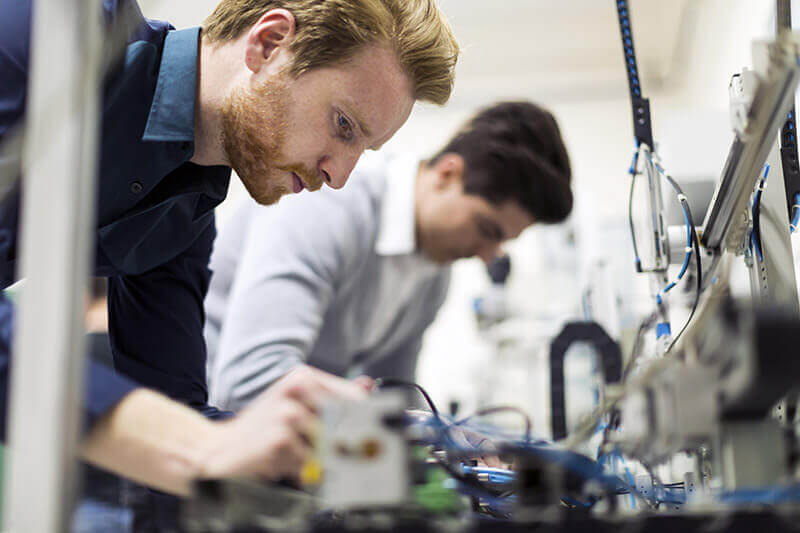 Our learning programs develop job-ready skills that have been proven time and again. Take a look at how we can help you be successful!
Our learning programs develop job-ready skills that have been proven time and again. Take a look at how we can help you be successful!
Colleges are challenged to offer courses whenever students are available – and frequently, wherever they are available. Students want courses that are available on campus as well as from home while also providing strong hands-on skills for the technology demands facing them. Meeting these demands is no small task.
Amatrol has learning programs that allow colleges to excel in this demanding environment. We offer a full range of learning systems, both in a traditional equipment lab setting as well as in a virtual lab, that meet and exceed students' expectations.
Science, Technology, Engineering & Mathematics
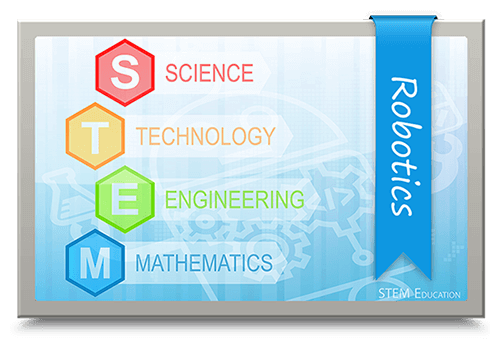
By 2018, the U.S. will have more than 1.2 million unfilled jobs in the areas of science, technology, engineering, and math (STEM) because there will not be enough qualified workers to fill them. STEM is where jobs are today and where the job growth will be in the future.
Through activity-, project-, and problem-based curriculum, our programs give students a chance to apply what they know, identify problems, find unique solutions, and lead their own learning. When students understand how their education is relevant to their lives and future careers, they get excited, and are more successful.
Students gain knowledge and skills in the following STEM areas:
- Engineering design process
- Industry standard 3D modeling software
- Using an engineer’s notebook
- Mechanisms, energy, statics, materials, and kinematics
- Development of residential and commercial properties and structures
- Project research, testing and validation techniques

